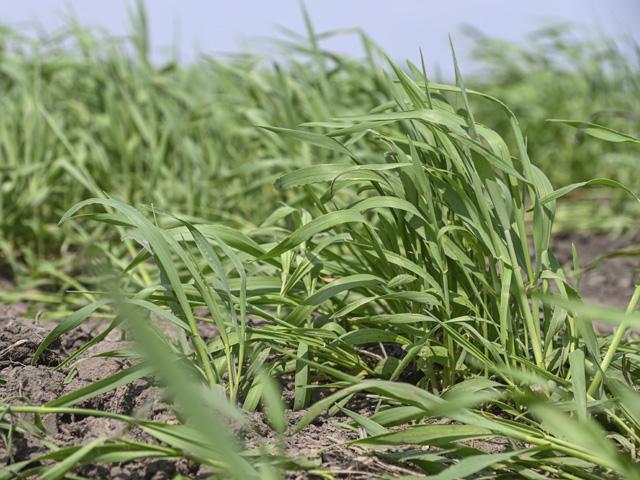Want to Plant Cover Crops? It's Not Too Late
It May be Halloween, But Don't be Scared to Plant Cover Crops
ANKENY, Iowa (DTN) -- There's still time to plant cover crops this fall, but chose the crop to be seeded carefully.
The University of Missouri's Center for Regenerative Agriculture recently published a newsletter saying some cover crops can be planted in early November, despite the days getting shorter and colder. Read the newsletter at https://mailchi.mp/….
Anna Morrow, Midwest Cover Crops Council program director, said some winter cereals and cool-season grasses are still OK to plant in most places due to cold tolerance of the plants. Cereal rye is especially hardy and can germinate at temperatures just above freezing. Winter wheat and triticale could be other options. Barley may fit in limited geographies.
"There are still benefits to planting cover crops this time of year," Morrow said. "Preventing soil erosion and nutrient loss are the big benefits. You don't want to lose productive soil and the nitrogen fertilizer that you paid for. And we want to keep nutrients out of waterways."
P[L1] D[0x0] M[300x250] OOP[F] ADUNIT[] T[]
Before farmers plant cover crops, Morrow recommends using the council's Cover Crop Decision Tool. Find it at www.midwestcovercrops.org/covercroptool/.
The online tool provides acceptable seeding dates for various cover crop species for specific locations based on 30 years of climate data and weather patterns.
"We want farmers to be very cautious because some cover crops, such as radishes, don't do well this late in the year," Morrow continued. "For some cover crops, it is too late to plant."
Despite below-average rainfall, some early-planted cover crops are greening up. Even if late-planted cover crops don't get established this fall, Morrow said cold-tolerant cover crops will grow in the spring once temperatures rise above 40 degrees Fahrenheit.
"You may not get a fall benefit, but you'll have spring benefits," she said.
Morrow encourages farmers to research what cover crop species fit planting conditions and their overall soil health and nutrient sequestration goals.
Learn more about cover crops and the Midwest Cover Crops Council at www.midwestcovercrops.org.
Matthew Wilde can be reached at matt.wilde@dtn.com
Follow him on Twitter @progressivwilde
(c) Copyright 2022 DTN, LLC. All rights reserved.






